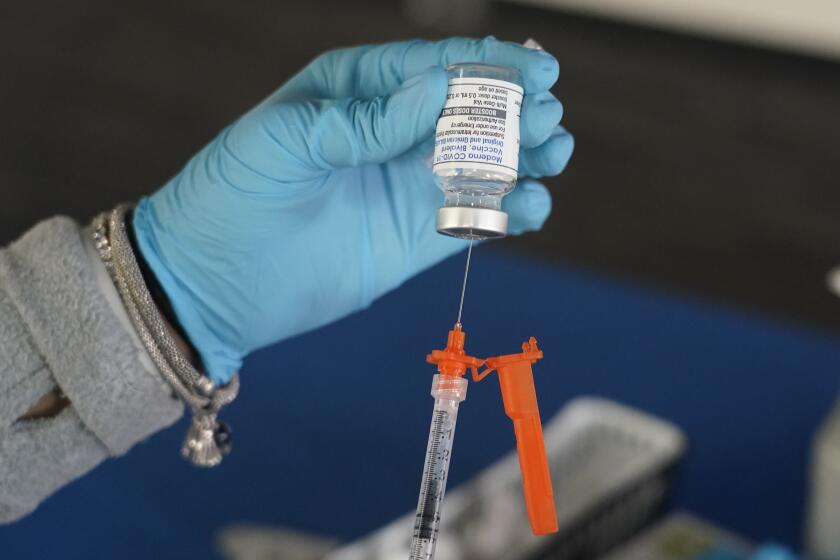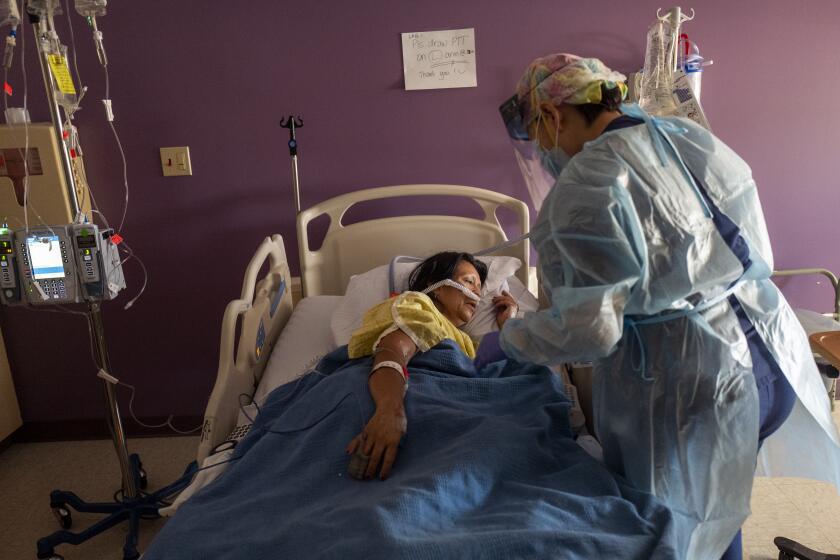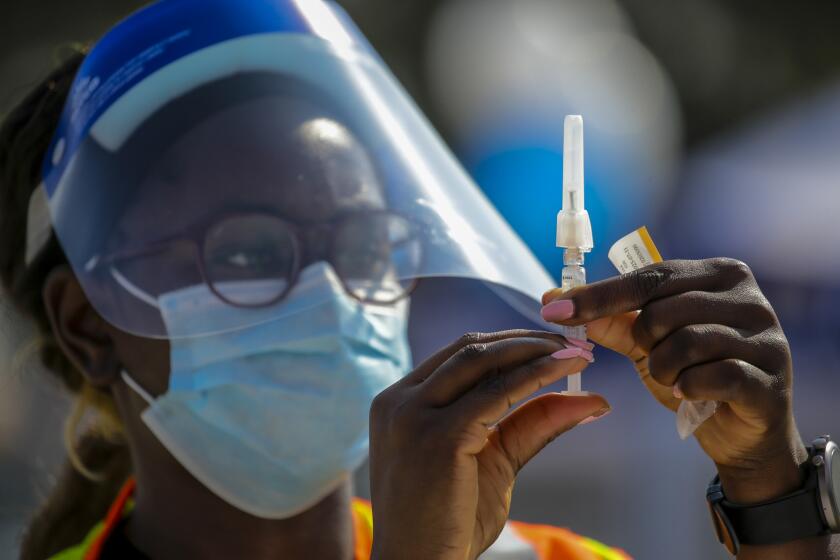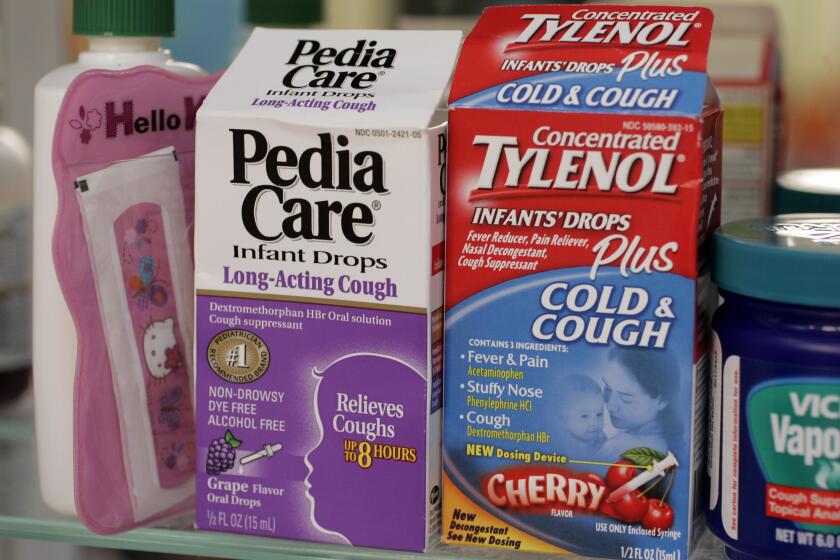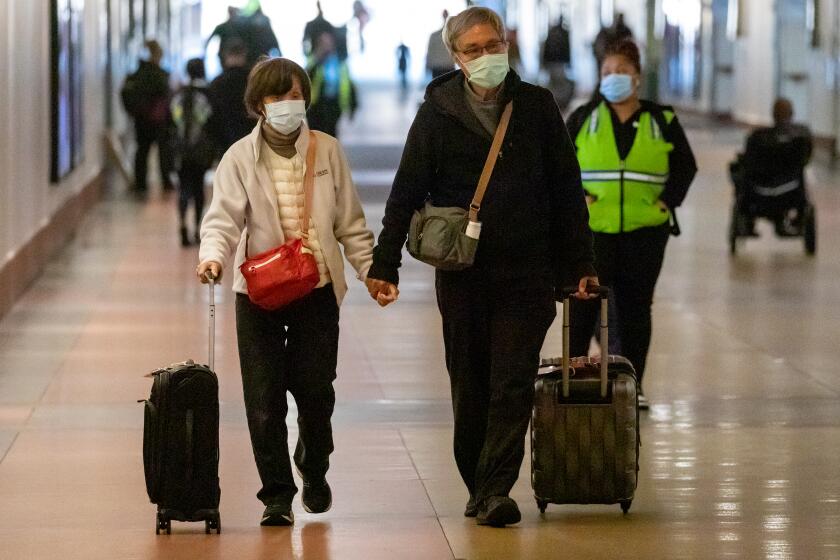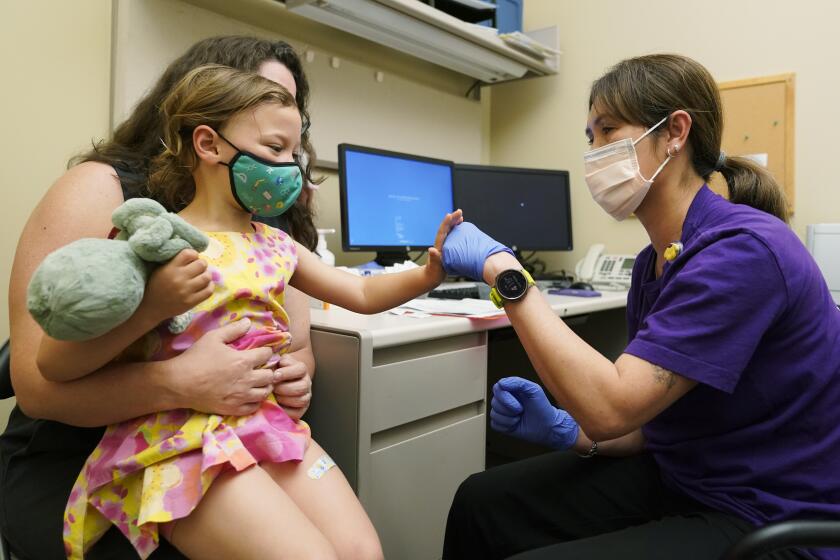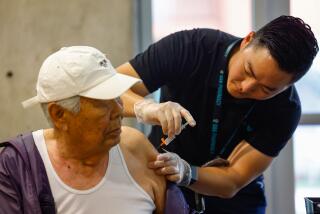How to avoid illness as COVID-19 and the flu surge
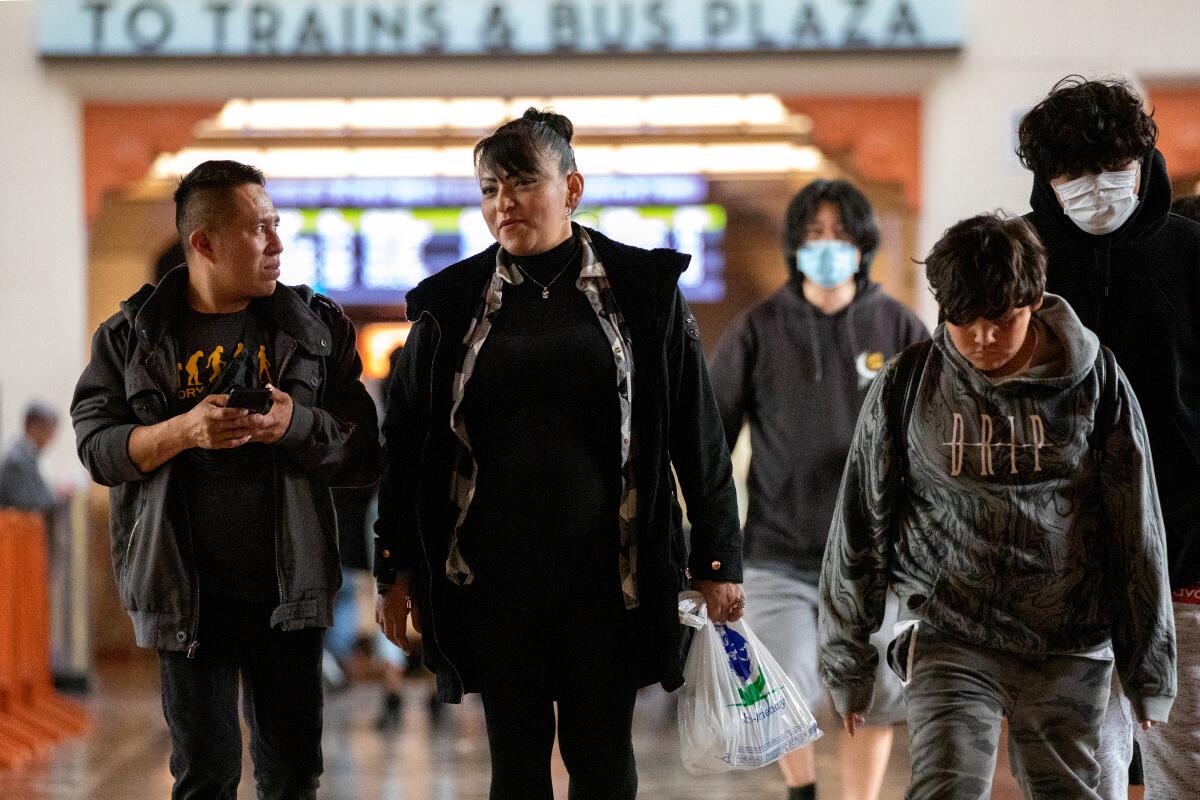
- Share via
A one-two punch of COVID-19 and the flu is striking California, sickening residents — some so severely they’ve had to go to the hospital — interrupting daily life and threatening to upend holiday plans.
But while both diseases are spreading widely, officials stress that Californians aren’t powerless. There are steps everyone can take to better protect themselves and those around them.
Here are some tips:
Get your shots
Vaccines are available for COVID-19 and the flu — and officials say rolling up your sleeve is a potent way to ward off severe illness.
The updated COVID-19 booster shot became available in September, but most people haven’t gotten it. Statewide, 19.4% of eligible residents have received the additional dose, according to the California Department of Public Health.
With coronavirus cases and hospitalizations rising in Los Angeles County, officials are voicing new confidence in the effectiveness of the updated COVID-19 booster shot.
The new bivalent booster is formulated to protect not only against the original coronavirus strain, but also the Omicron subvariants that dominated the nation throughout much of the year — namely BA.5.
“Getting that updated bivalent vaccine is the single most important thing you can do to make sure immunity is up to date and that you can fight the virus that’s out there,” said Dr. Ashish Jha, the White House COVID-19 response coordinator.
Among UC San Francisco employees and students, 1 in 100 people who have gotten the updated COVID-19 booster have since come down with a coronavirus infection. But among those who haven’t gotten the shot, 1 in 20 have been infected, Dr. Ralph Gonzales, a UC San Francisco associate dean, said at a recent campus town hall.
“When you have good strain match with the booster and the vaccine, you actually do prevent quite a bit of infection,” Gonzales said.
California is simultaneously contending with a spike in coronavirus transmission, an early onslaught of RSV and a strong start to the flu season.
It’s also not too late to get your primary COVID-19 vaccine series. In October, unvaccinated Californians were two times more likely to become infected and be hospitalized with COVID-19 and three times more likely to die from the disease than their vaccinated counterparts, state data show.
The flu shot is also very well matched to the circulating flu strains this season, officials say.
“Because any case of influenza can end up being severe, especially when it spreads to people who are at high risk — and this includes older adults and young children — we do ask that you know that it’s not too late to get your seasonal flu shot,” Los Angeles County Public Health Director Barbara Ferrer said.
Officials also note residents can get both the flu vaccine and COVID-19 vaccine at the same time.
“It’s really easy. It’s totally safe. It works. Your immune system is very good at being able to handle two vaccines at once,” Jha said Friday.
Looking for an easy way to reduce your risk of catching a viral illness? Try to stop touching your face.
Wash your hands, cover your coughs and sneezes
It sounds simple, but it’s true. Many viral illnesses, including flu and respiratory syncytial virus, or RSV, are spread through touch, such as making contact with a contaminated surface and then your face.
“Spend at least 20 seconds scrubbing with soap and water, or use a hand sanitizer if you don’t have access to soap and water,” Ferrer said.
It’s also a good idea to disinfect commonly touched surfaces, Gonzales said.
Avoiding touching your face as much as possible is also a good idea. Flu can be transmitted by touching a virus-contaminated surface and then touching your hand, eye or mouth.
“Very good studies have shown that if we can double down our efforts to be vigilant about this, that will increase our chances of staying flu free,” Gonzales said.
The coronavirus, on the other hand, is primarily transmitted through the air — namely when an infected person coughs or sneezes. That’s why it’s important to cover your face, using something like your elbow or a tissue, when you sneeze or cough.
With COVID-19, flu and RSV cases rising, drugmakers and retailers say soaring demand is leading to empty shelves.
Urge sick people to stay home
It’s a bummer to cancel events, especially after the interruptions over the last two years, but even a tickle in the throat or feeling under the weather should be a loud warning sign to stay home.
Take a rapid test before an event
A coronavirus rapid test can help identify asymptomatic people who are infected and contagious before attending a gathering. The strategy is not foolproof, but it can help — especially if the test is taken as close as possible to the start of an event.
Take social events outside or open a window
There’s a reduced risk of viral transmission when events are held outdoors. It’s better to offer beverages and food outside, if possible. Improving ventilation by opening doors and windows, or using an air purifier, can also help.
Local health officials are again strongly recommending that everyone wear a mask in indoor public spaces, but a mandate is looking more iffy.
Consider masking
Officials and experts say wearing a mask in indoor public settings can reduce the risk of infection, both from COVID-19 and other respiratory illnesses, by blocking the respiratory particles that can spread disease.
“Wearing a mask in indoor public places, among other safety measures, effectively slows the spread of respiratory viruses that make children and the elderly very sick,” according to the California Department of Public Health.
Masking can also “significantly slow the spread and protect babies and young children who do not have immunity and are too young to wear a mask themselves,” the department wrote on Twitter this week.
Sleep, exercise and manage stress
As Gonzales noted, “During the holiday period … we tend to get really busy with work, and with this surge, we have a lot of inactivity and stress.”
“And what we know from studies of medical students before finals, and with marathon runners, is that stress —whether it’s mental stress or physical stress — does increase your risk of getting infected with respiratory viruses. And that risk increases two- to threefold,” Gonzales said.
He suggested making sure to practice these good health habits:
• Get plenty of sleep.
• Be physically active.
• Manage your stress.
• Drink plenty of fluids.
• Eat nutritious food.
U.S. regulators have cleared pediatric doses of the updated COVID-19 vaccines to children ages 6 months to 5 years.
Vitamin C could help
Vitamin C might help stave off infections.
Gonzales said he’s a long-distance runner, and that 50% to 70% of the time when long-distance runners get colds and flus is after large events.
“Randomized trials show that 1,000 milligrams of vitamin C, once a day, can help cut that risk in half,” Gonzales said. “And then there’s also been studies of vitamin C in people, before finals, who have had lack of sleep and lots of stress, to show that it also helps with that.”
More to Read
Sign up for Essential California
The most important California stories and recommendations in your inbox every morning.
You may occasionally receive promotional content from the Los Angeles Times.
